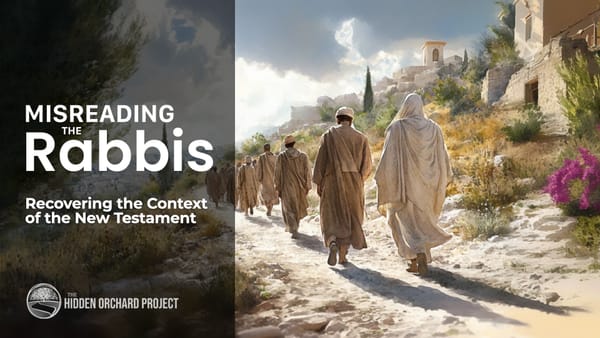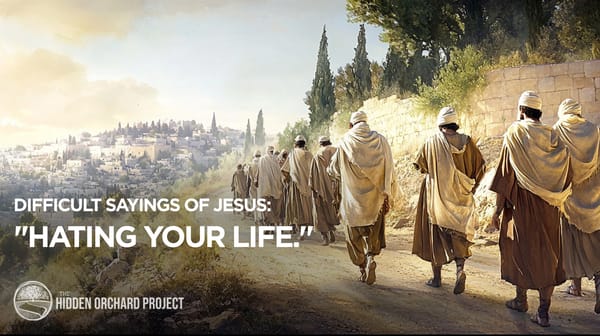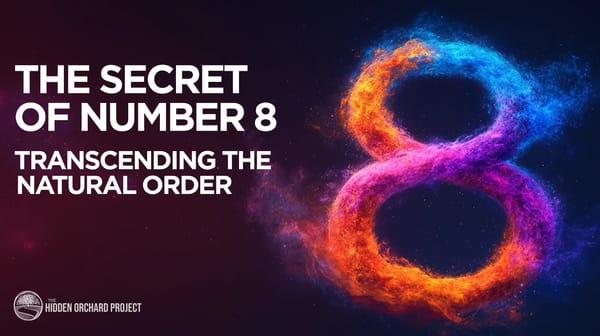Is Rosh Hashanah for Everyone?
A little-known secret; though Jews observe this holiday, this holiday is an incredible opportunity for everyone on earth! This is because, on Rosh Hashanah is the day the report card of every individual in the world, undergoes a review.

While many in the US have a day off of school, Rosh Hashanah is generally considered a Jewish holiday. In Hebrew, Rosh Hashanah literally means 'the head of the year,' but most consider it the Jewish New Year.
A little-known secret; though Jews observe this holiday, this holiday is an incredible opportunity for everyone on earth! This is because, on Rosh Hashanah is the day the report card of every individual in the world, undergoes a review.
As many are familiar, this is captured in the Book of Job:
Now the day came about that the divine beings presented themselves before the LORD, and the Adversary came along with them.
- Job 1:6
Rashi, a famous commentator, tells us that this is the day referenced here is Rosh Hashanah¹.
Why Consider Observing Rosh Hashanah?
Tradition tells us that Rosh Hashanah is the day that humankind was created, thus humanity's birthday. For this reason, it is suggested that we pause and consider the quality of our actions and how we might want to clean up our habits for the future.
A Period of Repentance
Historically, this period reflects the time(s) Moses ascended Mount Sinai to begin 40-day periods of repentance, and preparation, on behalf of the nation. Interestingly, the Torah tells us his efforts of repentance were successful, and it was on Yom Kippur (Tishrei 10) that he returned with the second set of Tablets.
Because the spiritual energy and mazal of the month of Elul are mercy - religious Jews worldwide use the 40 days between Elul 1 and Yom Kippur, focusing on personal and collective repentance.

Additionally, the tradition tells us that it was the 10 days between Rosh Hashanah to Yom Kippur that Isaiah was referring to when he said the following;
“Seek G_D when He can be found; call upon Him when He is near.” - Isaiah 55:6
How to Prepare
Beginning on the first of Elul², we should begin to recall and examine all of our errors from the previous year. How many times did we lose our temper? How many times did we gossip or complain? Have we engaged in certain destructive activities, or invested time in harmful habits? What is the underlying pattern, and even source of these errors?
It is an optimal time to begin a new Mussar study or begin a new soul-rectifying discipline, like prayer or meditation.
Through this process, we should take inventory of our mistakes, and seek to repent of them. It is also important that we connect with those we have hurt or wronged, making amends to the best of our ability.
Another worthwhile practice is to engage in giving charity. Whether to people, non-profit organizations, or giving gifts to friends and family. These can go a long way to bringing rectification because money is a powerful spiritual tool when used with proper intention³.
If you do not make the best use of the month of Elul, you still have [what is called] the 10 Days of Awe⁴, which are essentially the 10 days from Rosh Hashanah to Yom Kippur. There is still an opportunity to make progress during this time, though it is always better not to wait until the last minute.
So, find a friend, and together begin digging deep, setting an intention of who you'd like to be when the final shofar blows at the end of Rosh Hashanah.
Notes:
¹ Now the day came about That day which was Rosh Hashanah, (known as a day of sounding the shofar, and the Holy One, blessed be He, commanded the Adversary to bring the merit and the guilt of all creatures. This is the meaning of “from going to and fro on the earth.”) - Rashi on Job 1:6
² https://www.hebcal.com/holidays/2023-2024
³ https://www.thehiddenorchard.com/rethinking-money/
⁴ https://www.myjewishlearning.com/article/the-ten-days-of-repentance/




